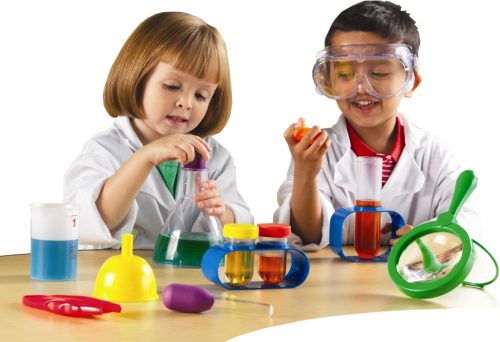Science for kids is a great way to encourage curiosity and imagination in the youngest of minds. The benefit of educating children about science comes from two major factors: (1) it helps create an interest in science and math, and (2) by encouraging independent thinking, and hence critical thinking skills, children become well-rounded adults who are capable of dealing with any situation, of functioning well in society, and can succeed in their education. The good news is that you don’t have to spend a lot of money on something that can be taught to your children at an affordable price.
Just by starting out with some basic science, kids can begin to appreciate the concepts behind every scientific discovery, which makes it much easier for them to go on to first grade science and reading. Even for an older child, it’s always helpful to start teaching children at a young age.
A good start for a young child may include visiting museums, aquariums, and visiting science centers, so that they can see what’s happening in the world around them, and learn about the origin of everything. This is one of the best ways to introduce children to science and cause them to become more interested in the subject.
A few days after this, it is very important to involve your child in various activities that involve exploring and uncovering the world around them, and teaching them how things like the Earth’s magnetic field, the moon, and the stars work. Exploring and uncovering are some of the main reasons for any child to want to learn more about science, and such exploration may be best accomplished by giving them books, and letting them develop their own theories as they read them. Later on, they can use these theories in their science projects, and this is a very good way to teach them science.
There are also plenty of great things to do, from traveling to visit historical places, like castles, landmarks, and historical sites, to reading famous and funny stories, which help them develop a love for literature. In some cases, children are encouraged to make their own version of a story, or choose a part of a story that they would like to follow, and then write their own script. They also get to read out loud a favorite piece of literature.
When children do science experiments, they are usually given science books, so that they can make their own experiments, and see if it works. A wonderful thing about science for kids is that they learn a lot more from doing experiments than simply reading about the results. Often, a child will be able to use their discoveries as a basis for their own experiment, and use the results to find out more about what happens when two substances are put together.
You may want to start out with a couple of simple experiments, so that you can build on them, and see what they can do, and also teach your child how to do research, which they need to do at the same time they are learning science. It’s very important to expose your child to all of the different types of science and literature, and encourage them to use their own brain power, without being pressured to act according to authority figures.

Comments are closed, but trackbacks and pingbacks are open.